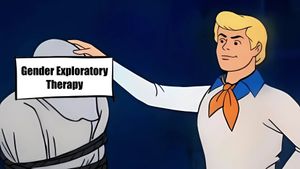All Rights reserved
By continuing to use our site, you agree to our Privacy Policy and Terms of Use.
The National Institutes of Health has refused a petition by the nonprofit group Essential Innovations for a license to produce a generic version of the patented protease inhibitor Norvir. The NIH decision effectively upholds the 400% price increase on the drug made by pharmaceutical company Abbott Laboratories. Essential Innovations claimed the price hike violated the Bayh-Dole Act, which allows the government to reclaim patents of inventions partially funded by federal tax dollars if the companies owning the patents do not deliver the products to market in ways that achieve practical application. Norvir's early development was partially financed by $3.5 million in NIH funds. But NIH officials rejected Essential Innovations' arguments, claiming that Abbott Laboratories has made the product widely available as required by the law and that issuing a license to produce a generic version of the eight-year-old protease inhibitor would exceed the Bayh-Dole Act's intent and have overly broad effects on the pharmaceutical market. 'The issue of drug pricing has global implications and, thus, is appropriately left for Congress to address legislatively,' NIH director Elias Zerhouni ruled. In December 2003, Abbott raised the price of a single dose of the drug from $1.71 to $8.57, according to reports. Because Norvir is widely used in low dosages to boost the effects of other protease inhibitors, the price tag for many anti-HIV drug cocktails increased similarly. Consumer advocates and AIDS activists decried the price increase, noting that it applies only to U.S. sales of the drug. They also note that the price of Abbott's other protease inhibitor, Kaletra, which contains a small boosted dose of Norvir in the same pill, was not increased, making that drug cheaper than other boosted protease-inhibitor'based regimens. The groups alleged unfair trade practices. Abbott officials released statements that the price increase was made to better reflect the role of Norvir as a low-dose booster in HIV therapy and to help fund the company's research and development activities, including studies of new anti-HIV drugs. U.S. representative Sherrod Brown, a vocal critic of the Norvir price hike, says the NIH ruling suggests that 'it doesn't matter what drugmakers charge for a taxpayer-subsidized drug as long as they continue to sell it.' Essential Innovations general counsel Robert Weissman calls the ruling a 'horrible decision' and has vowed to work with Brown to file an appeal with the U.S. Department of Health and Human Services.



































































